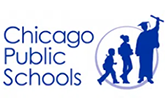CIT offers Ulster-Scots interpreters and translators with legal, medical and specialty experience, including criminal and civil matters, employee meetings, engineering, patent cases, labor disputes, immigration and more.
Although based in Los Angeles, CIT offers comprehensive Ulster-Scots language services including interpretation, translation and transcription, 24 hours a day, 7 days a week, worldwide. Our interpreters and translators are native speakers who have been screened, certified, have provided credentials, field tested, and kept up to date with developments in both English and the Ulster-Scots language through means such as lectures, conferences, and travel. CIT’s Ulster-Scots language interpreters and translators possess in depth knowledge of the Ulster-Scots language, as well as of the culture and history of the Ulster-Scots people, allowing them to provide informed and complete interpretation and translation.
The Ulster-Scots language, known as Scots, is a West German language. Ulster-Scots is spoken by about 1.5 million people in Scotland and Northern Island. There are anywhere between 100,000 and 125,000 native Scots speakers. There are far more second language speakers, around 1.5 million. The language originated from the Angles who had settled northern Britain in what is known today as Northumbria and the southern part of Scotland in the 400s. Ulster-Scots was originally referred to as Inglis. Other similar languages, such as Gaelic, Norse, Latin, Dutch, French and English have influenced the language’s development. The Ulster-Scots language is also referred to as Scots, Doric, Scotch and Lallans.
Already in the 1300s, Ulster-Scots had become the primary language of Scotland. At this point, it was being used for several purposes such as education, literature, government and documents. It was around this same time that Scottish literature began to gain popularity. Some famous literature would be Brus, Kronykil and Wallace.
When the Scottish and English governments merged in the beginning of the 18th century, English was now the main language. However, many people still spoke Ulster-Scots. In Scotland, Scots was slowly but surely replacing English as the main language. In the early 1980s, the New Testament had been translated and published in Scots and a couple of years later, a Scots Dictionary was released. By the 1990s, the Scots language was not really being used in education, literature nor in media.
To some, Scots had been considered English, especially since it is very close to some English dialects spoken in Northumbria. Even with such similarities, the Scots language has its own voice and has since the 1300s.
Scots is written using a Latin alphabet. Scots follows a subject-verb-object order, just like English does.


No matter what your needs may be, we can and are ready to assist you now. We have translators and interpreters standing by 24/7.

CIT's interpreter is such a rockstar, and it’s so great to have him as a lead interpreter for our Board meetings. About Our Interpreters 
Thank you for always being able to handle emergency interpreting assignments with ease. About Urgent Requests 
Thank you for always being able to handle emergency interpreting assignments with ease. About Urgent Requests 
Your translation rates are more competitive than other language service providers I used in the past. About Pricing 

Professionalism matters at CIT. We respond to request inside 24 hours.







